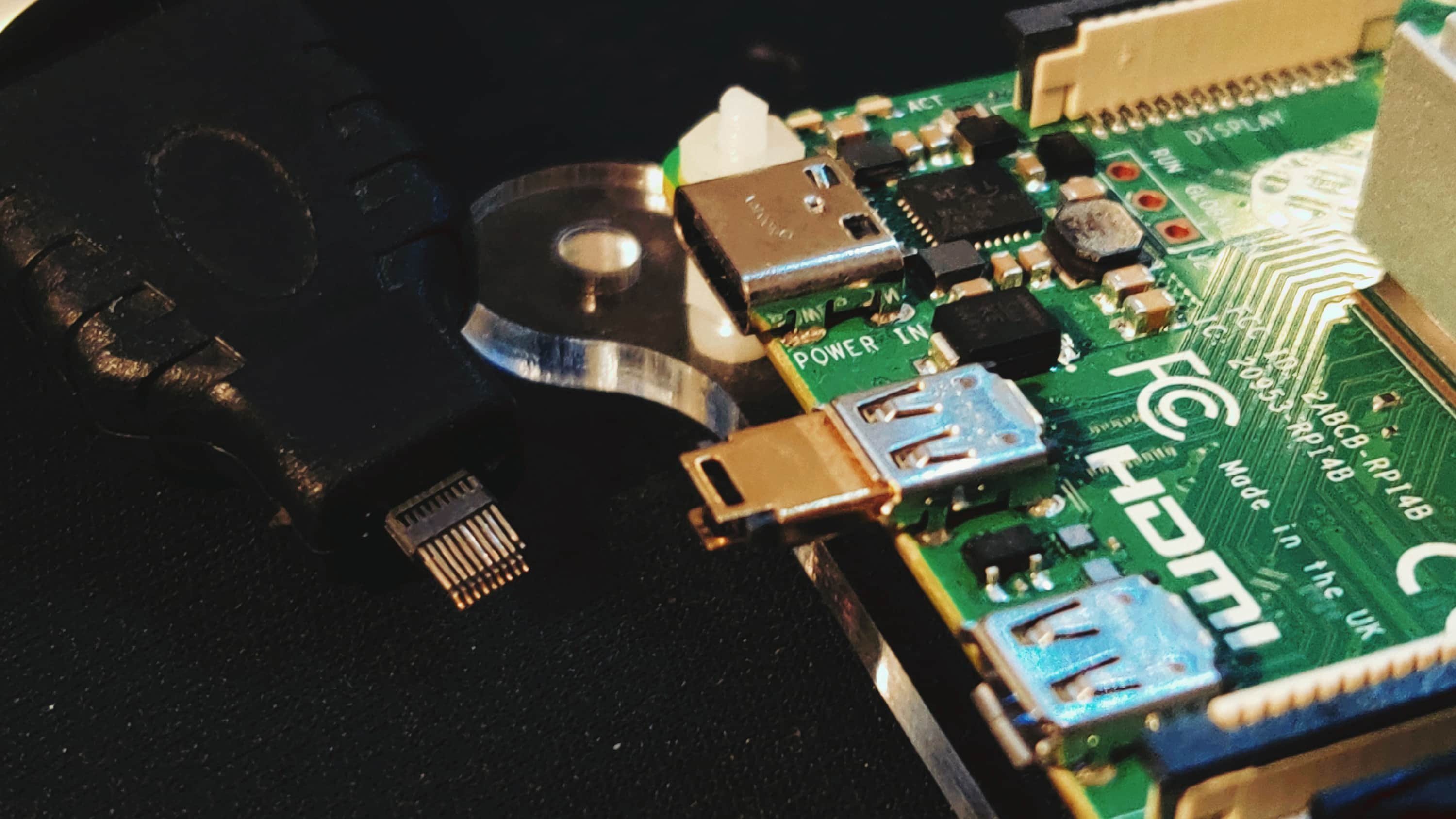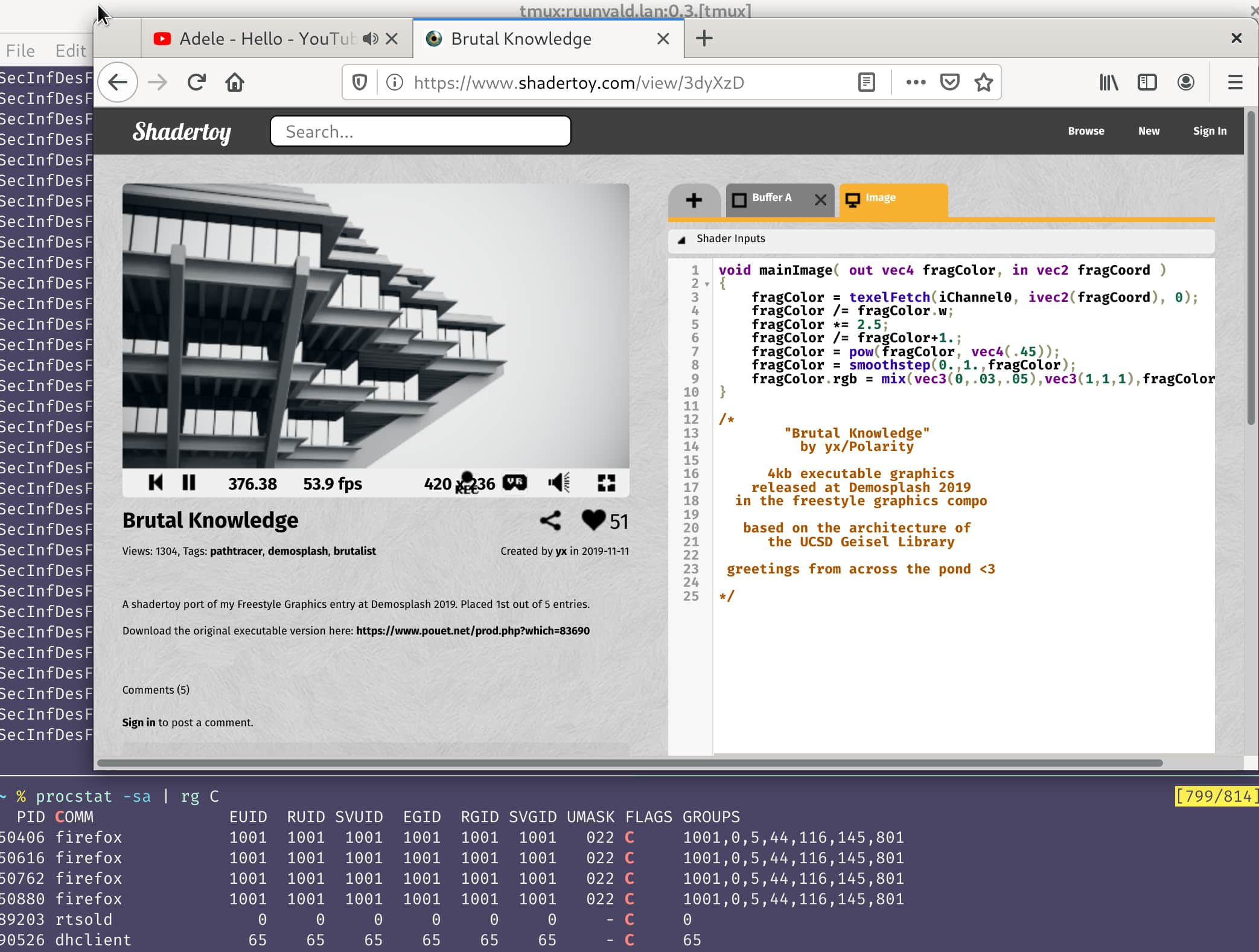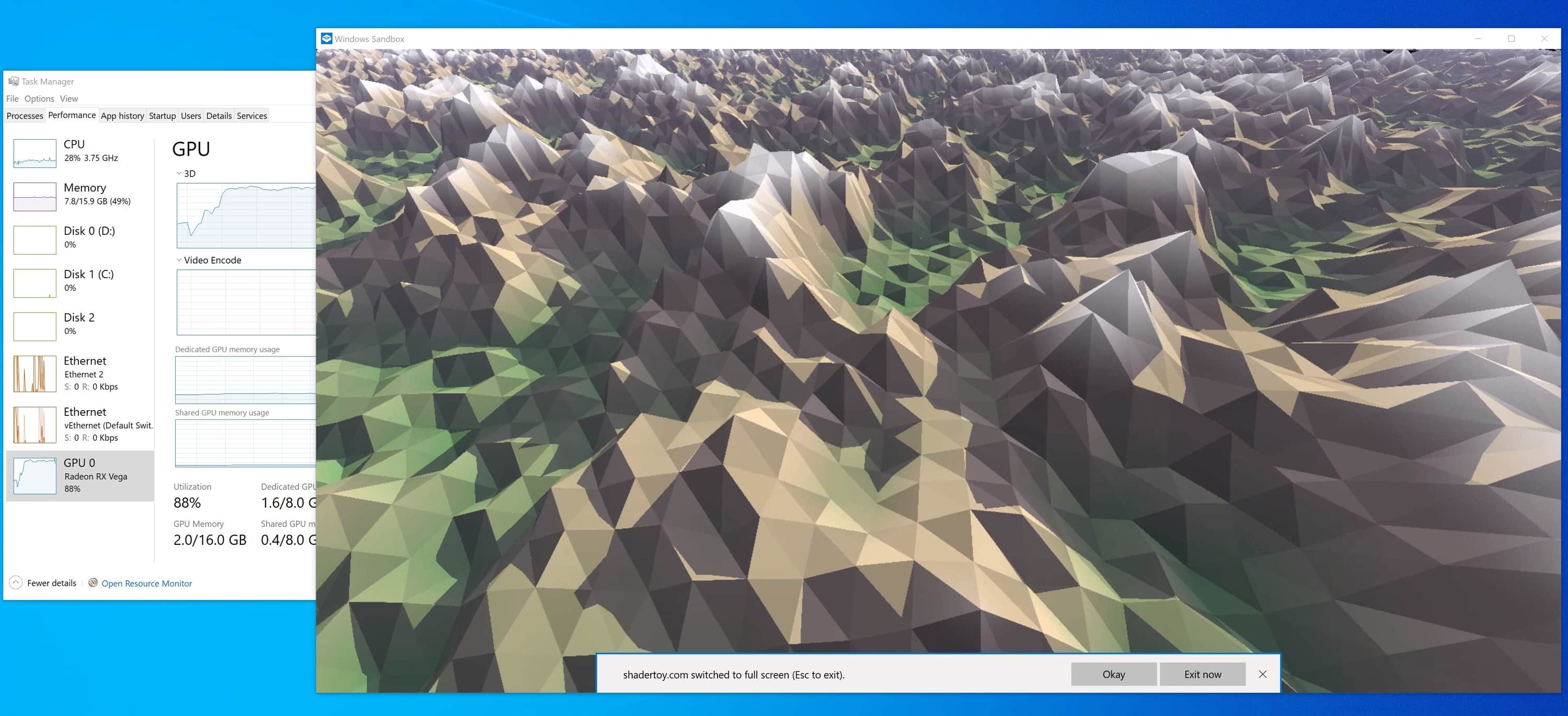Ported the Firefox Profiler to FreeBSD in order to investigate why
WebRender has some jank when scrolling some walls of text on my 4K/HiDPI setup.
The profiler code initially looked somewhat scary:
some Google Breakpad code is used,
a custom stack unwinder called LUL is used on Linux (which also partially derived from Breakpad code)…
Initially, I got it working with “pre-symbolication” (an option to build the goblin ELF parser
into Firefox for this purpose) only, ifdef’ing any Breakpad code out.
Turns out:
- the only part of Breakpad used is extracting build IDs from shared objects
(and in fact the “base profiler”, a copy (for now) of the Gecko profiler used for profiling during the early startup phase,
just copied all the relevant code);
devel/breakpad was there in FreeBSD Ports (but expires in like three days!),
and its patches showed that it’s really trivial to get all it working.
So I got the main symbolication system working. Which, it turns out, runs
WebAssembly-compiled goblin in a web worker!
Fun stuff. Requires stripping libxul for now tho.
In the end, the patch turned out to be mostly just ifdef’s!
The only meaningful parts are: thr_self/thr_kill2 instead of gettid/tgkill,
supporting the different mcontext structs, and
(for the pre-symbolication code path) ignoring symbol names returned by dladdr because they’re hilariously bad.
BTW, earlier in the dev-tools-on-FreeBSD space: heaptrack!
I even used it to find a real memory leak in Wayfire.



